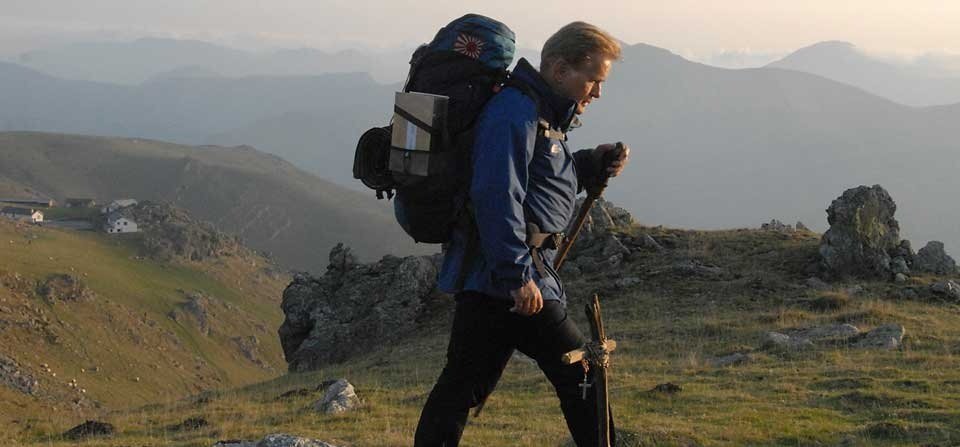On Pilgrimage and Advent
by Nelson Heppner
The Way with Martin Sheen
The Way is a film about many things. It is a story of four disparate characters, each on the ancient pilgrimage route of the Camino de Santiago de Compostella. It is a story of redemption, a story of discovery, a story of penance, a story of forgiveness, of loneliness and friendship, of revelation and unclarity. Each character has (or had) a reason for embarking on an 800 km journey, but none of the reasons was entirely clear, even for themselves. But for each of the characters, it was in some ways a journey of longing and hope. And in many ways, that is also the story of Advent.
While living in Egypt in 2006, Christmas came and went, and for one of the first times in my life it was without a lot of fanfare, commercialism, even decorations. Some of my friends remembered that the 25th was Christmas in the West, and wished me a Merry Christmas, but everything was very low key. Our Mennonite Central Committee staff got together for a short retreat, where we sang some carols, gave some gifts and ate some turkey, but even then the highlight was the social gathering. Life went back to normal on Monday.
It was also the first time in 23 Christmases I had been away from my closest family. Besides a brief telephone call (with a poor connection) and a few emails, I hadn’t had the family connections that are a major part of Christmas at home. And if I’m entirely honest, it seems there was quite a hole left by removing all these things.
But, this void of sorts gave me an opportunity to reflect a little more on Advent. Advent is a time of waiting, a time of longing and of hope. When I squint my eyes and try to catch a glimpse of Christmases past, I remember waiting for presents, longing for that electric race-track (which I never did get) and hoping that Grandma would have good candy this year. Then, on or around Christmas Day, it was all over. Boxing Day is such an anticlimactic day. All the anticipation gone, without much to show for it.
Maybe it took a few thousand kilometers to separate me from all that. As I reflected on Advent and Christmas that year, it occurred to me that maybe Christmas is not meant to be the payoff at the end of our building excitement. It is merely the beginning. Monday morning reminds us that life is still difficult, we still have flaws, and our relationships aren’t quite what we want them to be.
Life is difficult in Egypt, especially for the Christians I worked with there. Most people work at least two jobs just to make ends meet. Many are unemployed, which is even more difficult. Besides that, they face a corrupt and inefficient government that places many restrictions on Christians and churches. Add to that the daily grind of being a religious minority among a less than sympathetic Muslim majority. The events of the past year may have brought a lot of hope for change, but they have also intensified an already uncertain situation for Egyptians. Into lives like these Advent comes to mark the long wait for something better. It is an expression of longing for freedom - religious, political and economic. And it truly is a message of hope. “Peace on earth, goodwill among men” seems a long way off, but it is a promise to cling to.
The Camino de Santiago de Compostella has an ending at the cathedral tomb of St. James. For the pilgrim—or at least for the characters in this movie—the arrival at Santiago de Compostella is not the great climax of most epic journeys. It is a climax to be sure, but rather than great achievement it is the moment that each of the characters has finally shed all of the pretenses and burdens and pains that have slowly been unraveling along the way; they are at their most naked and honest, at last ready to see beyond themselves. The characters return to their lives and to the same problems that drove them to the pilgrimage, but they have seen something that has changed their very being.
So maybe a void is the best place to receive the Christ. He comes into it to wait with us, to walk with us, to offer us a glimpse of the Shalom we long for, and to give us something real to place our hope in. The advent of Christ marks not the triumphant solution to life’s problems, but the beginning of hope for salvation.
Nelson Heppner has attended st. ben's for a few years now. In 2005-2006, he taught English in rural Egypt.


